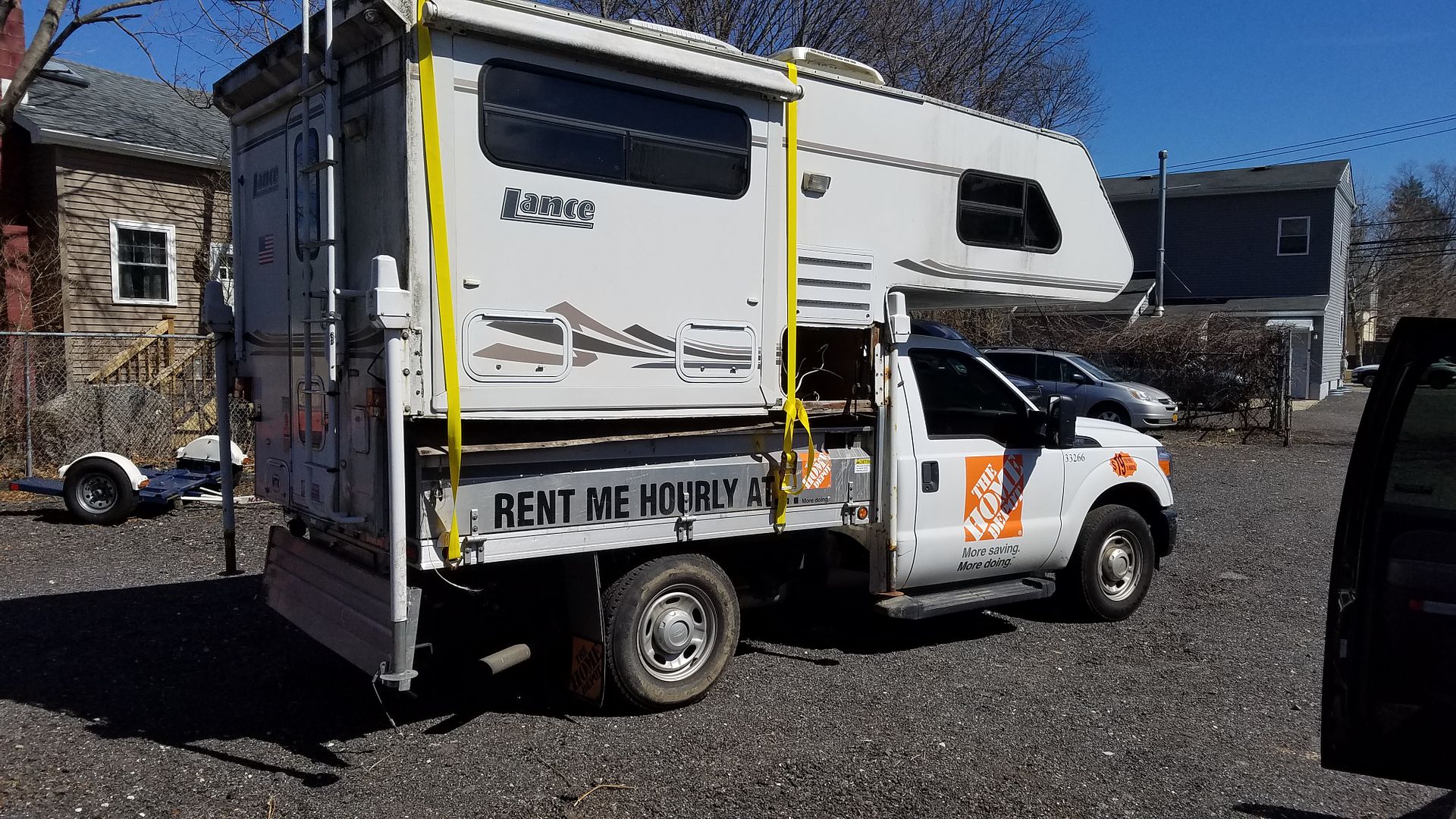Just to clear up some insurance concepts...
There are two main types of claims that could wipe out your tow vehicle:
A third party claim is where someone else is responsible for damaging your vehicle and you file a claim under the responsible party's liability coverage.
A first party claim is where you seek relief under your own auto policy. This could be because you wrecked your vehicle and there isn't another party who is at fault, so you file a claim under your collision coverage. Or your vehicle could have been stolen or burned in a fire (or lots of other things), so you would file a claim under your comprehensive coverage.
That's an oversimplification, but basically correct.
Most personal auto policies provide no rental coverage, so you're completely out of luck. Period.
Most policies also offer additional coverage for rentals, but you have to opt for that coverage and pay for it. It's kind of like the way your medical policy doesn't cover vision, so you have to buy additional coverage for eyeglasses.
Rental coverage is pretty bad though. When I handled claims back in the 90s, most policies reimbursed $23/day for rentals. All these years later, I think the standard is still only $26/day for rental reimbursement (it might be up to $30 by now). Good luck renting a tow vehicle for $30/day.
There's one other angle for first party claims, and that's your optional uninsured vehicle coverage. If somebody hits you and it's their fault (and if you opted to purchase uninsured coverage), then your insurance company fills in the role of the other party's insurance as if they were insured. The elements required here are that you can establish that (1) they were at fault, (2) you can positively identify the other party, and (3) the other party either has no coverage or is "underinsured" and your damages exceed their liability coverage. If you meet all those elements, then your uninsured coverage kicks in. These elements are designed to exclude hit and run claims, because it's too easy for people to crash into a wall and blame it on a phantom hit and run driver. Uninsured bodily injury coverage is different.
So for first party claims, you won't get more than your policy limits for rental reimbursement.
The bottom line for first party claims is that you have a contract with your insurance carrier and they will only pay out based on the terms of the policy. (It really helps to read it before you need it.)
The third party claims are more interesting though, because you're making a claim against someone else's policy even though you don't have a contract with the other party's carrier. Your claim is based on the common law notion of a "tort'.
I'm not a legal expert and I've heard many versions of this, but the elements of a tort are basically:
* The other party has a duty: In this case, their duty is to not hit you. Their duty is more specific based on the accident, but it could be that they had a duty to not run a red light or not to speed, etc.
* The other party breached their duty: They ran the light or whatever.
* Damages result: You've heard the phrase "no harm, no foul". This is based on the common law notion of a tort, and if you don't actually have damages, then there is no tort, or no civil liability.
* The other party's breach was the proximate cause of your damages: In other words, if they ran a red light and you coincidentally dropped your ice cream cone and hit a light pole, then the other party's breach wasn't the cause of your damages.
In a first party claim, you have policy limits that govern what your carrier will pay out. Specifically, they'll only pay your rental reimbursement if you bought that coverage, and then their payments will be governed by the policy limits and the amount of time your truck is not drivable.
In a third party claim, the ceiling is whatever a judge/jury would award you, up to their policy liability limits. Their policy doesn't limit your right to sue them though, but most people can't/won't pay beyond their policy limits. So if the other party had low limits (like $5,000 property damage), then you could force their insurance to pay for your expensive tow vehicle, but then there wouldn't be much left to pay to fix your truck. You can force the issue though and they'll be required to pay for your rental truck, because that's part of your damages. Don't expect the other party's insurance company to work very hard to find you that rental truck though, because even though they're liable to write you a check, they don't have a contract with you and they don't really care about you. It's way easier for the other party's claim rep to write you a check and jack up their policyholder's rates than it is for them to spend a couple days looking for your expensive rental (and then still writing a check and still jacking up the rates).
There's lots more to this and it can get even more complicated, but the bottom line is that your own policy isn't going to pay you much for a rental, and they won't pay you anything at all if you didn't specifically purchase the coverage. The other party's carrier will pay for the rental, but only if you push the issue and find the truck yourself.
If you think that the other party's liability limits won't be high enough to pay for your rental AND pay to repair your truck, then talk to your insurance company first and coordinate your claims with them.
I hope this helps.
